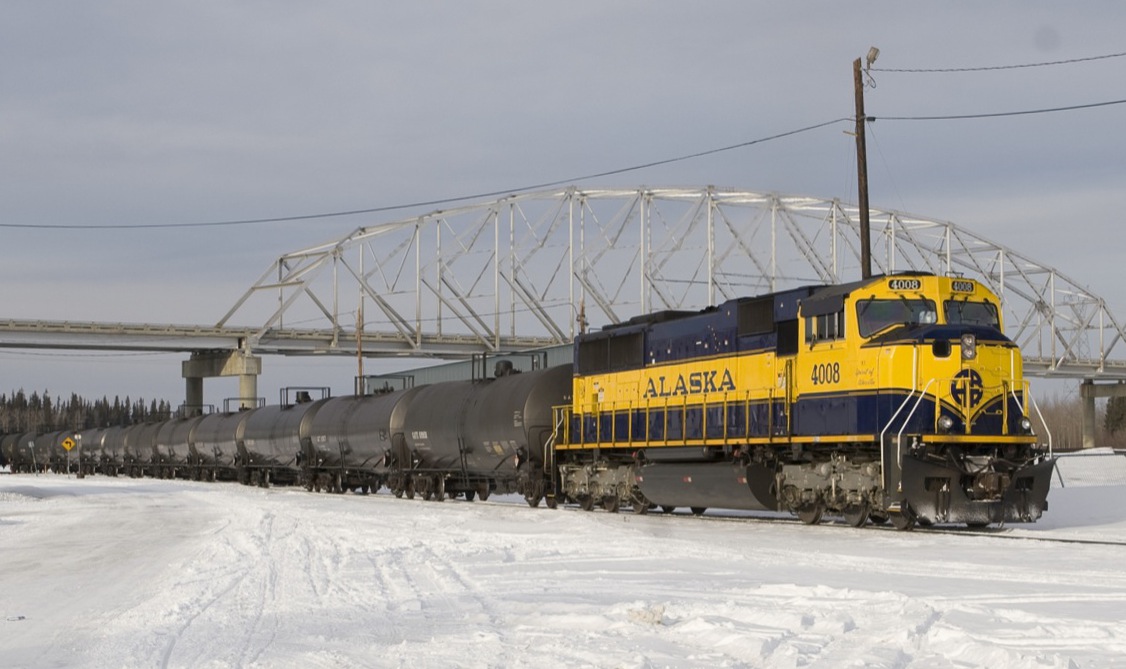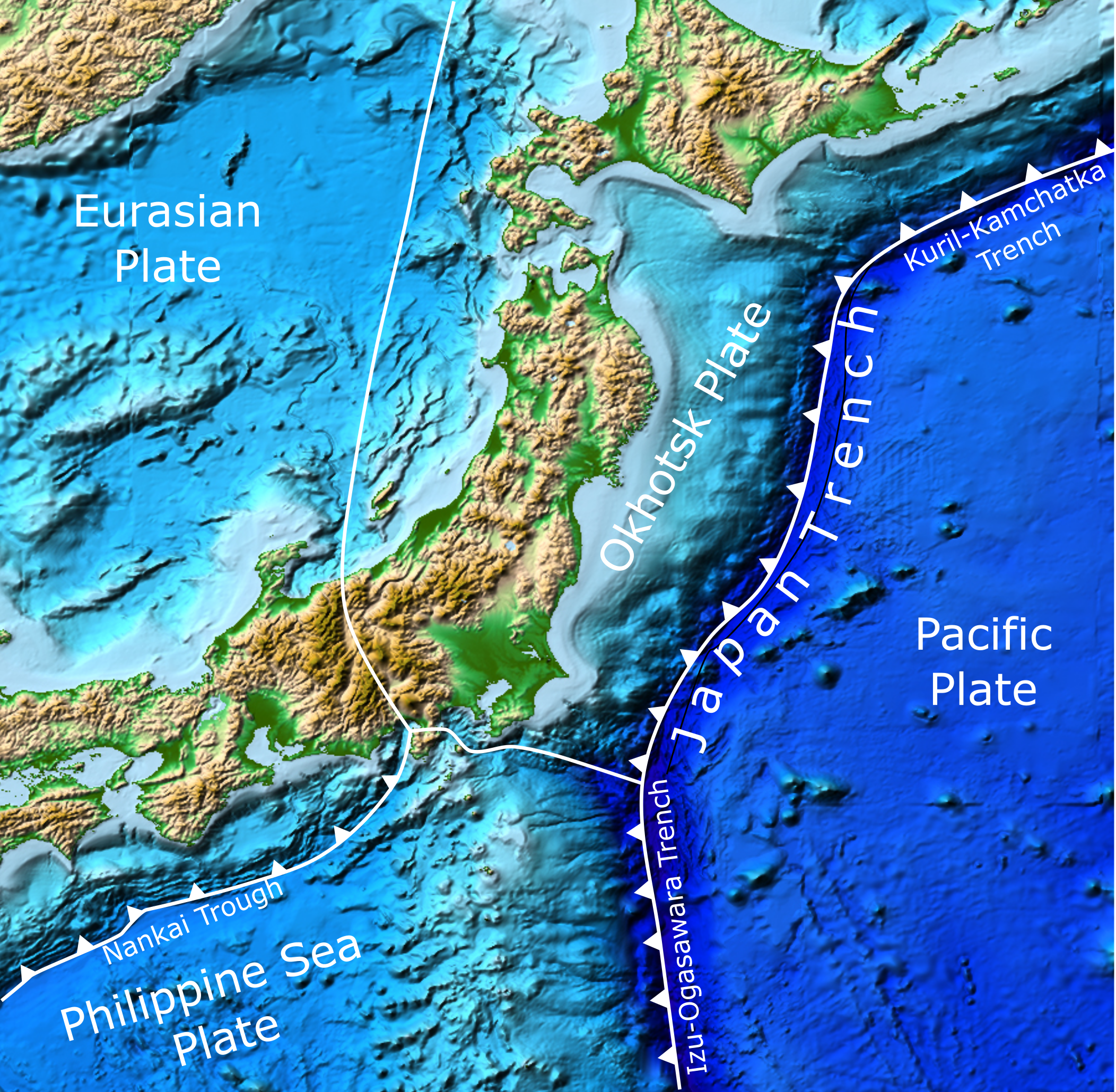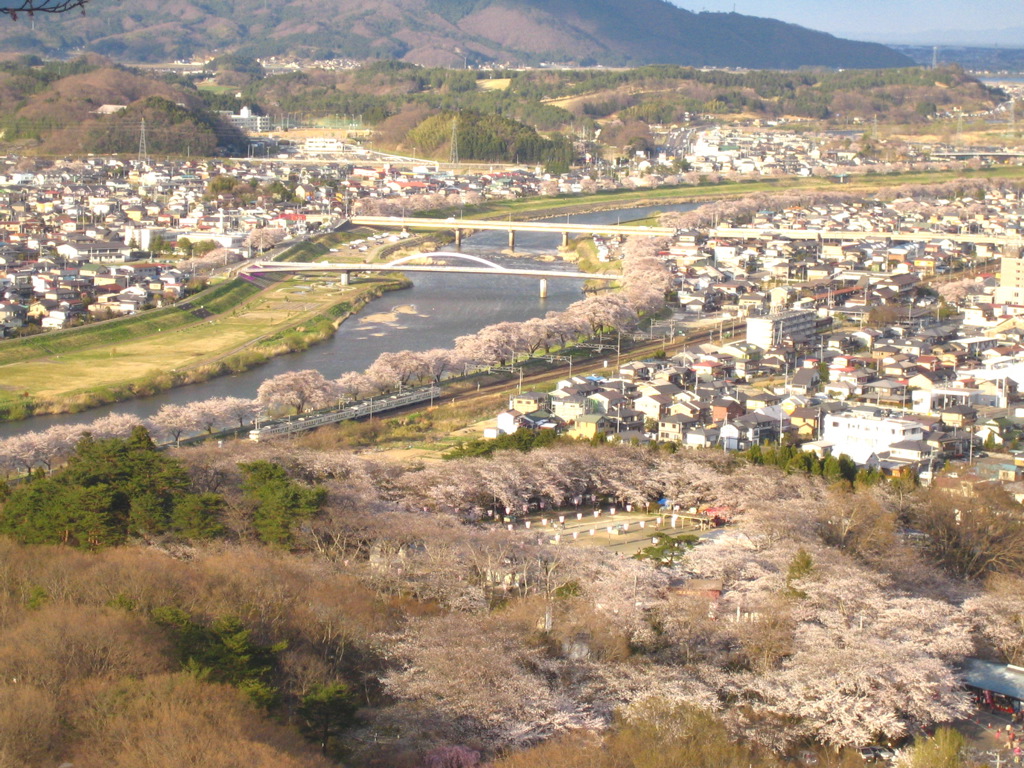|
Abukuma Express Line
The is a railway line in Japan, owned and operated by the third-sector operator Abukuma Kyuko. The line connects Fukushima Station in Fukushima Prefecture and Tsukinoki Station in Miyagi Prefecture. Both of these stations are also on the Tōhoku Main Line operated by East Japan Railway Company (JR East). Station list History The line first opened on 1 April 1968 as the , operated by Japanese National Railways (JNR) between Tsukinoki and Marumori. The original plan was to create a bypass route to relieve overcrowding on the Tōhoku Main Line The Tōhoku Main Line () is a railway line in Japan operated by the East Japan Railway Company (JR East). The line starts from Tokyo Station in Chiyoda, Tokyo and passes through such cities as Saitama, Saitama, Saitama, Utsunomiya, Tochigi, Uts ..., but work to extend the line was suspended following the quadrupling of tracks on the Tōhoku Main Line. In September 1981, the line was proposed for possible closure. Ownership of th ... [...More Info...] [...Related Items...] OR: [Wikipedia] [Google] [Baidu] |
Heavy Rail
Various terms are used for passenger railway lines and equipment; the usage of these terms differs substantially between areas: Rapid transit A rapid transit system is an electric railway characterized by high speed (~) and rapid acceleration. It uses passenger railcars operating singly or in multiple unit trains on fixed rails. It operates on separate right-of-way (transportation), rights-of-way from which all other vehicular and foot traffic are excluded (i.e. is fully grade separation, grade-separated from other traffic). The APTA definition also includes the use sophisticated railway signalling, signaling systems, and railway platform height, high platform loading. Originally, the term ''rapid transit'' was used in the 1800s to describe new forms of quick urban public transportation that had a right-of-way separated from street traffic. This set rapid transit apart from horsecars, trams, streetcars, bus, omnibuses, and other forms of public transport. A variant of the ter ... [...More Info...] [...Related Items...] OR: [Wikipedia] [Google] [Baidu] |
Date, Fukushima
is a Cities of Japan, city in Fukushima Prefecture, Japan. , the city had an estimated population of 59,625 in 22,843 households and a population density of 220 persons per km2. The total area of the city was . Geography Date occupies the eastern half of the Fukushima Basin in northern Fukushima prefecture, with Miyagi Prefecture on its northern border. The area was once noted for sericulture but transitioned to fruit cultivation during the Taishō period. It is currently organized into the five former towns of Date, Hobara, Fukushima, Hobara, Yanagawa, Fukushima, Yanagawa, Ryōzen, Fukushima, Ryozen, and Tsukidate, Fukushima, Tsukidate, each of which retain numerous unique traditions and events. Hobara is the central area, where the municipal government is based. *Rivers: Abukuma River, Hirose River Neighboring municipalities Fukushima Prefecture * Fukushima, Fukushima, Fukushima * Iitate, Fukushima, Iitate * Kawamata, Fukushima, Kawamata * Kunimi, Fukushima, Kunimi * Koori, Fu ... [...More Info...] [...Related Items...] OR: [Wikipedia] [Google] [Baidu] |
Japanese Third-sector Railway Lines
Japanese may refer to: * Something from or related to Japan, an island country in East Asia * Japanese language, spoken mainly in Japan * Japanese people, the ethnic group that identifies with Japan through ancestry or culture ** Japanese diaspora, Japanese emigrants and their descendants around the world * Japanese citizens, nationals of Japan under Japanese nationality law ** Foreign-born Japanese, naturalized citizens of Japan * Japanese writing system, consisting of kanji and kana * Japanese cuisine, the food and food culture of Japan See also * List of Japanese people * * Japonica (other) * Japanese studies , sometimes known as Japanology in Europe, is a sub-field of area studies or East Asian studies involved in social sciences and humanities research on Japan. It incorporates fields such as the study of Japanese language, history, culture, litera ... {{disambiguation Language and nationality disambiguation pages ... [...More Info...] [...Related Items...] OR: [Wikipedia] [Google] [Baidu] |
1968 Establishments In Japan
Events January–February * January 1968, January – The I'm Backing Britain, I'm Backing Britain campaign starts spontaneously. * January 5 – Prague Spring: Alexander Dubček is chosen as leader of the Communist Party of Czechoslovakia. * January 10 – John Gorton is sworn in as 19th Prime Minister of Australia, taking over from John McEwen after being 1968 Liberal Party of Australia leadership election, elected leader of the Liberal Party of Australia, Liberal Party the previous day, following the disappearance of Harold Holt. Gorton becomes the only Australian Senate, Senator to become Prime Minister, though he immediately transfers to the Australian House of Representatives, House of Representatives through the 1968 Higgins by-election in Holt's vacant seat. * January 15 – The 1968 Belice earthquake in Sicily kills 380 and injures around 1,000. * January 21 ** Vietnam War: Battle of Khe Sanh – One of the most publicized and controversial battles of the ... [...More Info...] [...Related Items...] OR: [Wikipedia] [Google] [Baidu] |
Railway Lines Opened In 1968
Rail transport (also known as train transport) is a means of transport using wheeled vehicles running in tracks, which usually consist of two parallel steel rails. Rail transport is one of the two primary means of land transport, next to road transport. It is used for about 8% of passenger and freight transport globally, thanks to its energy efficiency and potentially high speed.Rolling stock on rails generally encounters lower frictional resistance than rubber-tyred road vehicles, allowing rail cars to be coupled into longer trains. Power is usually provided by diesel or electric locomotives. While railway transport is capital-intensive and less flexible than road transport, it can carry heavy loads of passengers and cargo with greater energy efficiency and safety. Precursors of railways driven by human or animal power have existed since antiquity, but modern rail transport began with the invention of the steam locomotive in the United Kingdom at the beginning of the 19th ... [...More Info...] [...Related Items...] OR: [Wikipedia] [Google] [Baidu] |
1067 Mm Gauge Railways In Japan
1 (one, unit, unity) is a number, numeral, and glyph. It is the first and smallest positive integer of the infinite sequence of natural numbers. This fundamental property has led to its unique uses in other fields, ranging from science to sports, where it commonly denotes the first, leading, or top thing in a group. 1 is the unit of counting or measurement, a determiner for singular nouns, and a gender-neutral pronoun. Historically, the representation of 1 evolved from ancient Sumerian and Babylonian symbols to the modern Arabic numeral. In mathematics, 1 is the multiplicative identity, meaning that any number multiplied by 1 equals the same number. 1 is by convention not considered a prime number. In digital technology, 1 represents the "on" state in binary code, the foundation of computing. Philosophically, 1 symbolizes the ultimate reality or source of existence in various traditions. In mathematics The number 1 is the first natural number after 0. Each natural number, ... [...More Info...] [...Related Items...] OR: [Wikipedia] [Google] [Baidu] |
Abukuma Express Line
The is a railway line in Japan, owned and operated by the third-sector operator Abukuma Kyuko. The line connects Fukushima Station in Fukushima Prefecture and Tsukinoki Station in Miyagi Prefecture. Both of these stations are also on the Tōhoku Main Line operated by East Japan Railway Company (JR East). Station list History The line first opened on 1 April 1968 as the , operated by Japanese National Railways (JNR) between Tsukinoki and Marumori. The original plan was to create a bypass route to relieve overcrowding on the Tōhoku Main Line The Tōhoku Main Line () is a railway line in Japan operated by the East Japan Railway Company (JR East). The line starts from Tokyo Station in Chiyoda, Tokyo and passes through such cities as Saitama, Saitama, Saitama, Utsunomiya, Tochigi, Uts ..., but work to extend the line was suspended following the quadrupling of tracks on the Tōhoku Main Line. In September 1981, the line was proposed for possible closure. Ownership of th ... [...More Info...] [...Related Items...] OR: [Wikipedia] [Google] [Baidu] |
2021 Fukushima Earthquake
An intense and deadly seismic event struck offshore east of Tōhoku region, Tōhoku, Japan. The 7.3 or 7.1 earthquake occurred on a Saturday night at 23:07 Japan Standard Time, JST (14:07 Coordinated Universal Time, UTC) on 13 February at a focal depth of . It had a maximum Japan Meteorological Agency seismic intensity scale, JMA intensity of ''Shindo'' 6+ to ''Shindo'' 7 while on the Mercalli intensity scale, earned a rating of VIII (''Severe''). The earthquake was followed by multiple aftershocks within less than an hour, three of which registering magnitude 5.3. The earthquake itself has been considered an aftershock of the 2011 Tōhoku earthquake which had occurred almost ten years prior. The earthquake left three people dead, and at least 186 injured. It also inflicted significant structural damage across the Tōhoku and Kanto regions. This earthquake resulted in both insurance claims and losses exceeding ¥138billion (US$1.2billion). Small tsunami waves were also obser ... [...More Info...] [...Related Items...] OR: [Wikipedia] [Google] [Baidu] |
Abukuma Express Line'S Anniversary Festival
Abukuma may refer to: *Places in Japan: **Abukuma River ** Abukuma Highlands ** Abukuma-do, limestone caves in Fukushima, Japan **Abukuma Express Line The is a railway line in Japan, owned and operated by the third-sector operator Abukuma Kyuko. The line connects Fukushima Station in Fukushima Prefecture and Tsukinoki Station in Miyagi Prefecture. Both of these stations are also on the T ..., a railroad line ** Abukuma Station * Japanese cruiser ''Abukuma'', a World War II cruiser of the Imperial Japanese Navy {{disambiguation ja:阿武隈 ... [...More Info...] [...Related Items...] OR: [Wikipedia] [Google] [Baidu] |
Japanese National Railways
The , abbreviated JNR or , was the business entity that operated Japan's national railway network from 1949 to 1987. Network Railways As of June 1, 1949, the date of establishment of JNR, it operated of narrow gauge () railways in all 46 prefectures of Japan. This figure expanded to in 1981 (excluding Shinkansen), but later reduced to as of March 31, 1987, the last day of JNR. JNR operated both passenger and freight services. Shinkansen Shinkansen, the world's first high-speed railway was debuted by JNR in 1964. By the end of JNR in 1987, four lines had been constructed: ; Tōkaidō Shinkansen: , completed in 1964 ; Sanyō Shinkansen: , completed in 1975 ; Tōhoku Shinkansen: , as of 1987 ; Jōetsu Shinkansen: , completed in 1982 Buses JNR operated bus lines as feeders, supplements or substitutions of railways. The JR Bus companies are the successors of the bus operation of JNR. Ships JNR operated ferries to connect railway networks separated by sea or to meet other ... [...More Info...] [...Related Items...] OR: [Wikipedia] [Google] [Baidu] |
Shibata, Miyagi
is a towns of Japan, town located in Miyagi Prefecture, Japan. , the town had an estimated population of 37,617, and a population density of 700 persons per km2 in 15,590 households. The total area of the town is . Geography Shibata is located in south-central Miyagi Prefecture in the Tōhoku region of northern Japan. The Abukuma River runs through the town. Neighboring municipalities Miyagi Prefecture *Iwanuma, Miyagi, Iwanuma *Kakuda, Miyagi, Kakuda *Murata, Miyagi, Murata *Natori, Miyagi, Natori *Ōgawara, Miyagi, Ōgawara *Watari, Miyagi, Watari Climate Shibata has a humid subtropical climate, humid climate (Köppen climate classification ''Cfa'') characterized by mild summers and cold winters. The average annual temperature in Shibata is 12.5 °C. The average annual rainfall is 1263 mm with September as the wettest month. The temperatures are highest on average in August, at around 24.9 °C, and lowest in January, at around 1.4 °C. Demographics Per J ... [...More Info...] [...Related Items...] OR: [Wikipedia] [Google] [Baidu] |




